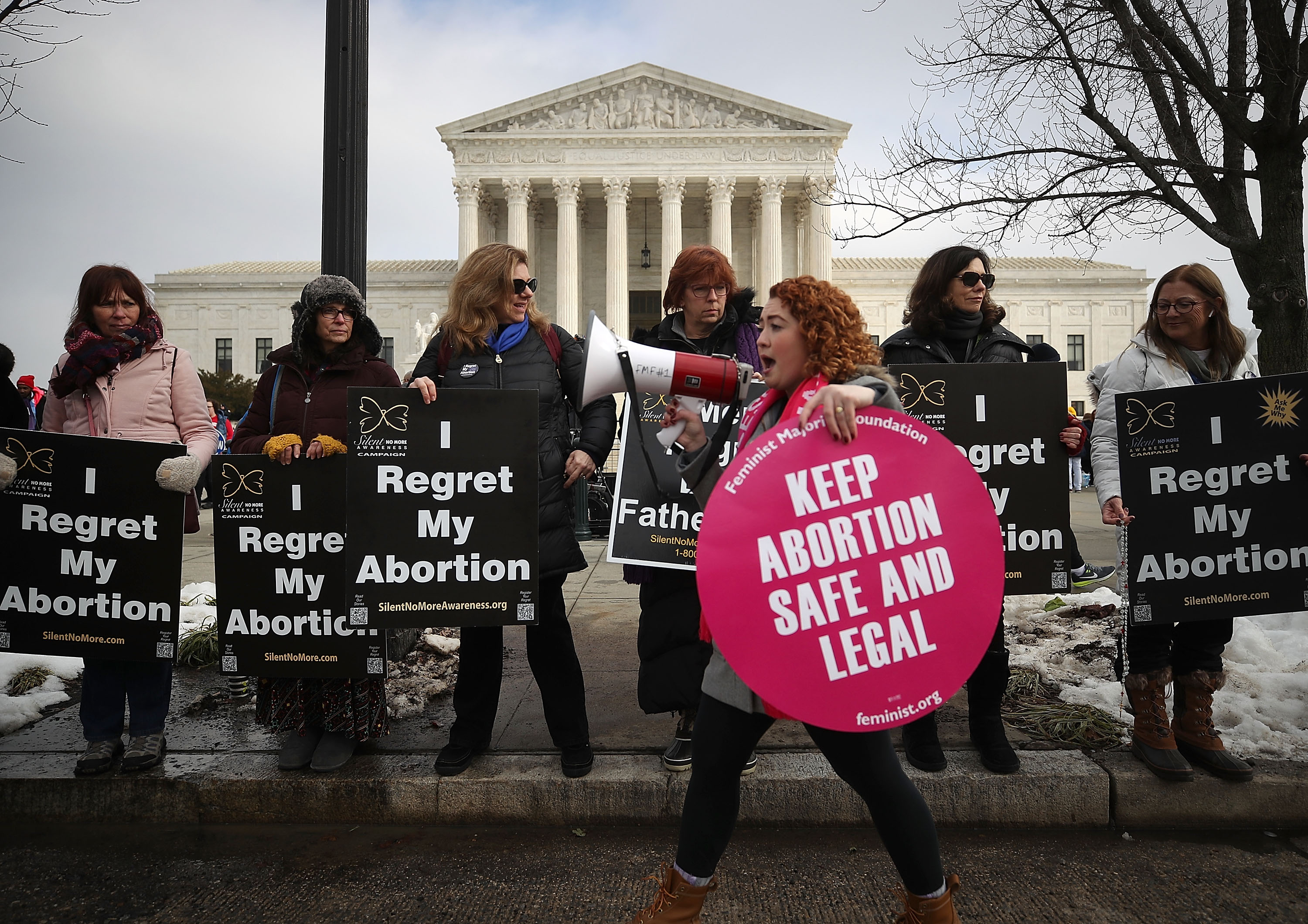Someone tried to light Whole Woman’s Health of McAllen on fire April 8.
The Texas abortion clinic, the only provider serving the Rio Grande Valley, where the average household income is just $37,000, has been around for decades. The clinic has proved resilient, outlasting Texas laws that shuttered other clinics like it.
The arsonist struck at night, after hours, when nobody was at the clinic, said Amy Hagstrom Miller, the founder and CEO of Whole Woman’s Health. A neighbor noticed the fire and immediately called 911, so the fire department was able to extinguish the flames before the clinic could be too badly damaged. The clinic remained open, but there was residual smoke damage, and the staff could still smell the accelerant used to burn the clinic’s fence.
Federal and state law enforcement are still investigating, but called the case cold last week. The clinic’s security camera captured a bit of the arsonist — his feet — which suggests to Hagstrom Miller that he knew exactly where the cameras were.
No one has ever tried to burn Whole Woman’s Health of McAllen down until now, notably during a time when Republican lawmakers have repeatedly accused people who have abortions and their doctors of infanticide, and President Donald Trump has used his bully pulpit to elevate this lie.
While the president has never explicitly asked his supporters to incite violence, he has graphically accused providers who perform abortion later in pregnancy of murder. During his 2019 State of the Union address, which had 46.8 million viewers, Trump lied and said a New York law codifying Roe v. Wade would “allow a baby to be ripped from the mother’s womb moments before birth.” Last weekend at a rally, Trump lied again, saying providers and patients weigh whether or not to “execute the baby” after birth.
“This kind of language is an invitation to that radical fringe,” said Hagstrom Miller. “It pitches women as murderers and providers as murderers and so, I mean, I would think that all of us are against murder, right? And so it’s like this call to action,” she added.
The incident in McAllen is part of a larger trend of clinic violence and harassment of pro-choice advocates, whether a fire at a Planned Parenthood clinic in Missouri three months ago or a Rhode Island man threatening to kill a pro-choice professor last month.
There’s no comprehensive look into whether clinic violence or harassment has spiked this year. The most recent data on hostility towards abortion providers comes from 2017, Trump’s first year in office. Compared to the year before, trespassing more than tripled; threats of harm or outright death threats nearly doubled; and incidents of obstruction more than tripled, according to the National Abortion Federation (NAF), which represents providers who take care of half of patients in the United States and Canada who decide to terminate their pregnancies each year.
Providers told ThinkProgress they feel the level of violence and harassment escalating. Dr. Diane Horvath, an OB-GYN in Baltimore, noticed an increase this year in protesters and trespassing at the clinic she works at. Her clinic has had to call the police to file a report for trespassing several times already this year.
“That’s new for us and it’s a bit disconcerting,” said Horvath. “But we always have our eyes open and the safety of our patients is at the forefront… the [trespassers] we’ve had have made comments to us, as the staff, or had wanted to engage with us, not the patients,” she added.
Horvath, who’s also a fellow with Physicians for Reproductive Health, said a nearby crisis pregnancy center, which misleads patients into thinking they provide reproductive services, appears to have changed its tactics this year.
Some of the new tactics feed off of legislation, like the so-called “fetal heartbeat” abortion bans, which anti-abortion lawmakers across the country have been trying to pass this year. Various patients who accidentally sought care at the fake clinic told Horvath that staff would put them in a dark room by themselves and play the sound of a heartbeat. Patients also said staff there would say they gave a copy of their ultrasound to patients’ partners.
“They’re emboldened by the political atmosphere. They’re feeding on these lies, these mischaracterizations and outright lies, about what abortion care actually involves,” said Horvath. “They feel as though there are no consequences for them doing this. And largely there haven’t been,” she added.
This kind of rhetoric is dangerous, as it emboldens the radical fringe within the anti-abortion movement. But this rhetoric also isn’t new; the violence directed at abortion providers isn’t either. Knowing this makes it all the more scary, as this type of rhetoric is historically linked with violence.
“We’ve seen those ebbs and flows over history at different points in time — that connects to increases in clinic violence, that have led to people being murdered, clinics being blown up, et cetera,” said Hagstrom Miller.
“This culture is very similar to times in the past when I’ve seen Bill O’Reilly cover Dr. [George] Tiller and call him ‘Tiller Tiller the Baby Killer’ over and over again. And then Dr. Tiller gets murdered,” she said, referring to a prominent Kansas physician who was murdered by an anti-abortion extremist in 2009. Tiller was one of three providers in the country to openly and routinely offer later abortions.
Every time the president or another GOP politician repeats this rhetoric, it becomes further normalized.
“We’re health care providers, right, we’re not engaging in some kind of war,” said Hagstrom Miller. “We’re not engaged in a fight. We don’t see ourselves as… working on the front lines — the fighting and the violence and the hostility is only coming from the protesters. It’s only coming from one side.”


